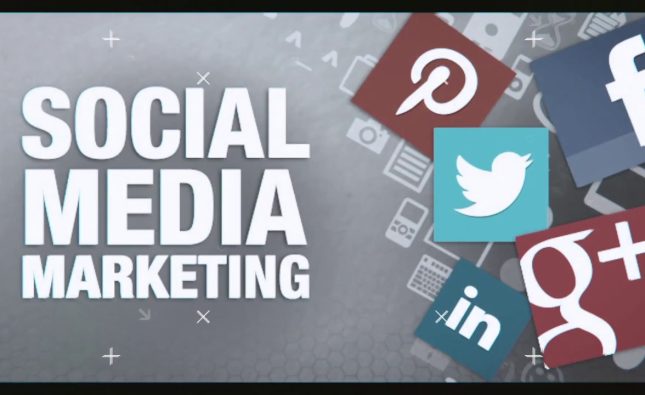
Starting a new business venture is an exhilarating experience, but with so much competition in the market, it’s difficult to establish brand awareness. In today’s digital age, content marketing has emerged as a powerful tool for startups to build their brand and attract potential customers. Content marketing involves creating valuable and informative content that resonates with your target audience while also promoting your brand. In this blog post, we’ll explore why early-stage startups should use content marketing as part of their growth strategy and how they can effectively use it to achieve success.
Introducing Content Marketing
Content marketing is a strategic approach to promoting your brand that involves creating and sharing valuable content with your target audience. Unlike traditional advertising methods, content marketing aims to educate and engage customers rather than simply selling them products or services.
One of the key advantages of content marketing is its ability to build trust with potential customers. By providing informative and useful content that addresses their pain points, you establish yourself as an authority in your industry and demonstrate your commitment to helping them solve their problems.
Another benefit of content marketing is its cost-effectiveness. While traditional advertising can be expensive, creating high-quality content requires relatively little investment beyond time and effort. Additionally, because most forms of digital content are easily shareable on social media platforms, it has the potential for exponential reach without significant additional costs.
Introducing a solid content marketing strategy early on can help startups establish brand recognition while building relationships with their target audience. With consistent effort and quality output, it has the potential to attract new leads while nurturing existing ones towards conversion further down the line.
Why startups should use content marketing
As a startup, it can be challenging to build brand awareness and establish yourself in the market. This is where content marketing comes in. By creating valuable content that resonates with your audience, startups can attract potential customers and differentiate themselves from their competitors.
Content marketing allows startups to showcase their expertise and thought leadership in their industry. By consistently producing high-quality content such as blog posts, social media updates, videos or podcasts that offer value to the reader or listener, startups can position themselves as trusted sources of information.
Furthermore, unlike traditional advertising methods which may not deliver immediate results for early-stage companies with limited budgets; content marketing provides an affordable way for startups to reach their target audience without breaking the bank.
By leveraging different channels such as search engine optimization (SEO), email newsletters or social media platforms – startups have greater flexibility to communicate effectively with their target market while generating leads at a lower cost than traditional advertising methods.
Content marketing has proven itself an effective tool for building brand awareness among early-stage businesses looking to stand out from competitors on a budget.
How to use content marketing
When it comes to using content marketing for your early-stage startup, there are a few key strategies that can help you maximize your efforts.
Firstly, it’s important to establish clear goals and objectives for your content marketing campaign. This will help guide the type of content you create, as well as the channels you use to distribute it.
Next, focus on creating high-quality, informative content that provides value to your target audience. This could include blog posts, infographics, videos or social media updates – whatever format best suits your message and audience.
In addition to creating great content, make sure you’re leveraging all available distribution channels. Share your posts on social media platforms like Facebook and Twitter; consider guest posting on relevant blogs or forums; and look into paid advertising options like Google AdWords.
Be consistent in your approach. Create a schedule or editorial calendar outlining when new pieces of content will be released so that you stay top-of-mind with potential customers while building brand awareness over time.
What type of content to create
When it comes to creating content, startups need to be strategic in choosing the type of content that will resonate with their target audience. The key is to provide value through informative and engaging content.
One effective type of content for startups is blog posts. Writing high-quality blog posts on relevant topics can help establish the startup as a thought leader in its industry. These posts can cover anything from industry news and trends to tips and how-to guides.
Another great way to create valuable content is by producing videos. Videos are an engaging form of media that can showcase products or services, offer how-to demonstrations, or simply tell a brand’s story. They’re also easily shareable on social media platforms.
Infographics are another popular format for startups looking to convey complex information in a visually appealing way. By presenting data and statistics in an easy-to-digest format, infographics can help build brand awareness while providing value to potential customers.
Podcasts have become increasingly popular over the years as an alternative medium for delivering valuable information. Startups can use this platform to discuss industry insights, interview experts or simply share their own unique perspectives on various topics related to their business.
In summary, there are many different types of content that startups can create ranging from written blogs and videos all the way up through infographics and podcasts – what’s important is finding out which ones work best for your particular business model!
Measuring success with content marketing
Measuring the success of your content marketing efforts is crucial to determine whether your strategy is working or not. There are several metrics that you can use to gauge the effectiveness of your content, and it’s essential to track them regularly.
One way to measure success is by tracking website traffic. By monitoring how much traffic your site receives before and after implementing a content marketing strategy, you can see if there has been a significant increase in visitors.
Another metric is engagement rates on social media platforms. Tracking likes, shares, comments, and followers will give you an idea of how well-received your content is among your target audience.
Conversion rates are also important when measuring success with content marketing. Monitoring how many leads or sales come from specific pieces of content will help you identify which type of material resonates best with potential customers.
Customer feedback surveys can provide valuable insights into the impact that your content has had on their decision-making process. These surveys can help you understand what types of information customers find most useful and what improvements they would like to see in future campaigns.
Consistently measuring success through these various metrics helps ensure that a startup’s brand awareness campaign continues moving towards its goals.
Conclusion
Content marketing is a powerful tool that can help early-stage startups build brand awareness and attract new customers. By creating valuable and engaging content, startups can demonstrate their expertise, provide value to their target audience, and differentiate themselves from competitors.
However, it’s important to remember that content marketing is not a quick fix or a one-time effort. It requires dedication, consistency, and patience to see results. Startups should focus on creating high-quality content that speaks directly to their audience’s needs and interests.
By leveraging various types of content such as blog posts, videos, social media updates, podcasts etc., startups can create an omnichannel experience for their prospective clients which will strengthen the visibility of the brand in every possible way.
If done right through careful planning with SEO strategies in mind while maintaining quality throughout all stages of creation from ideation up until publication; Content Marketing has tremendous potential for startup businesses looking to gain traction online.










